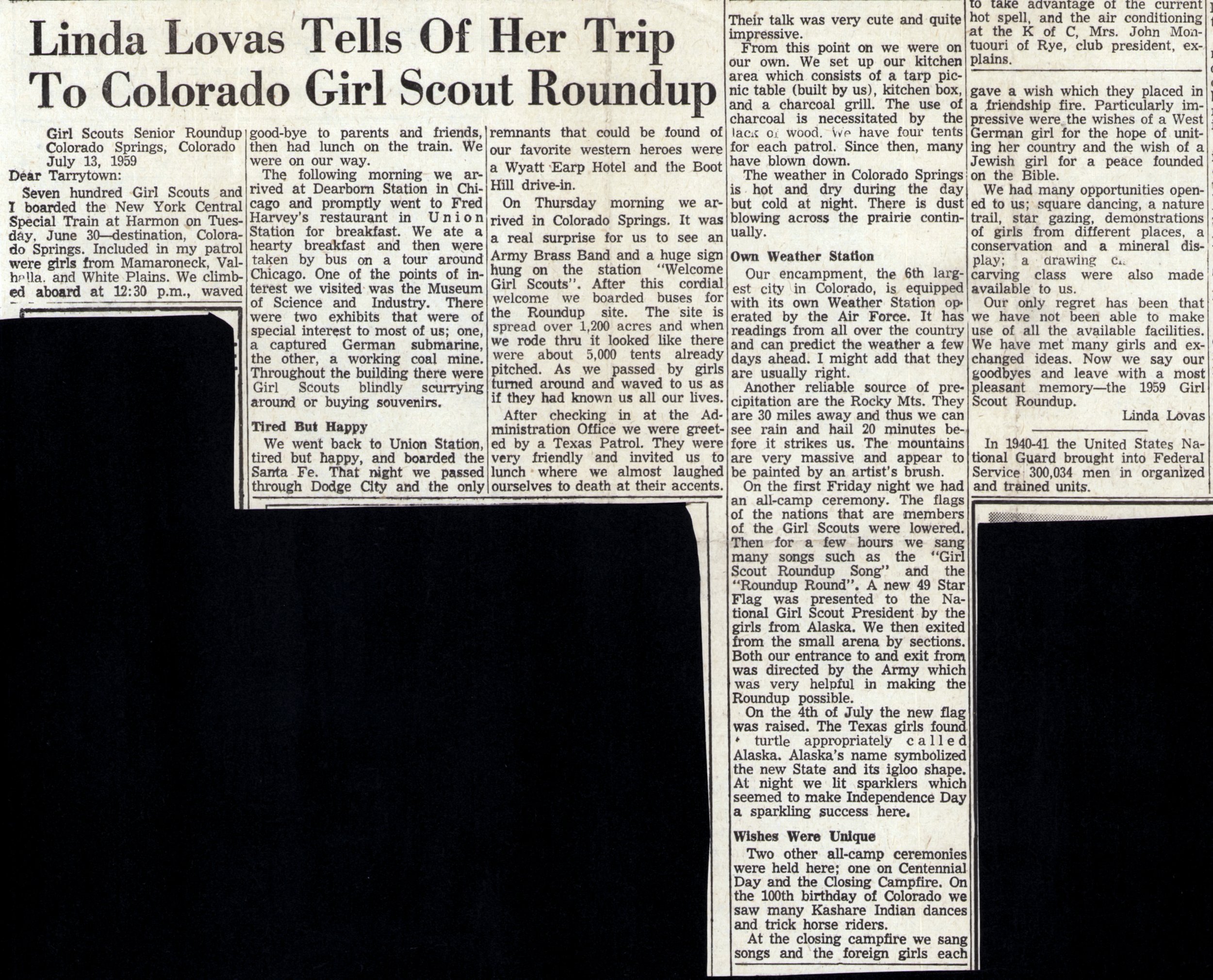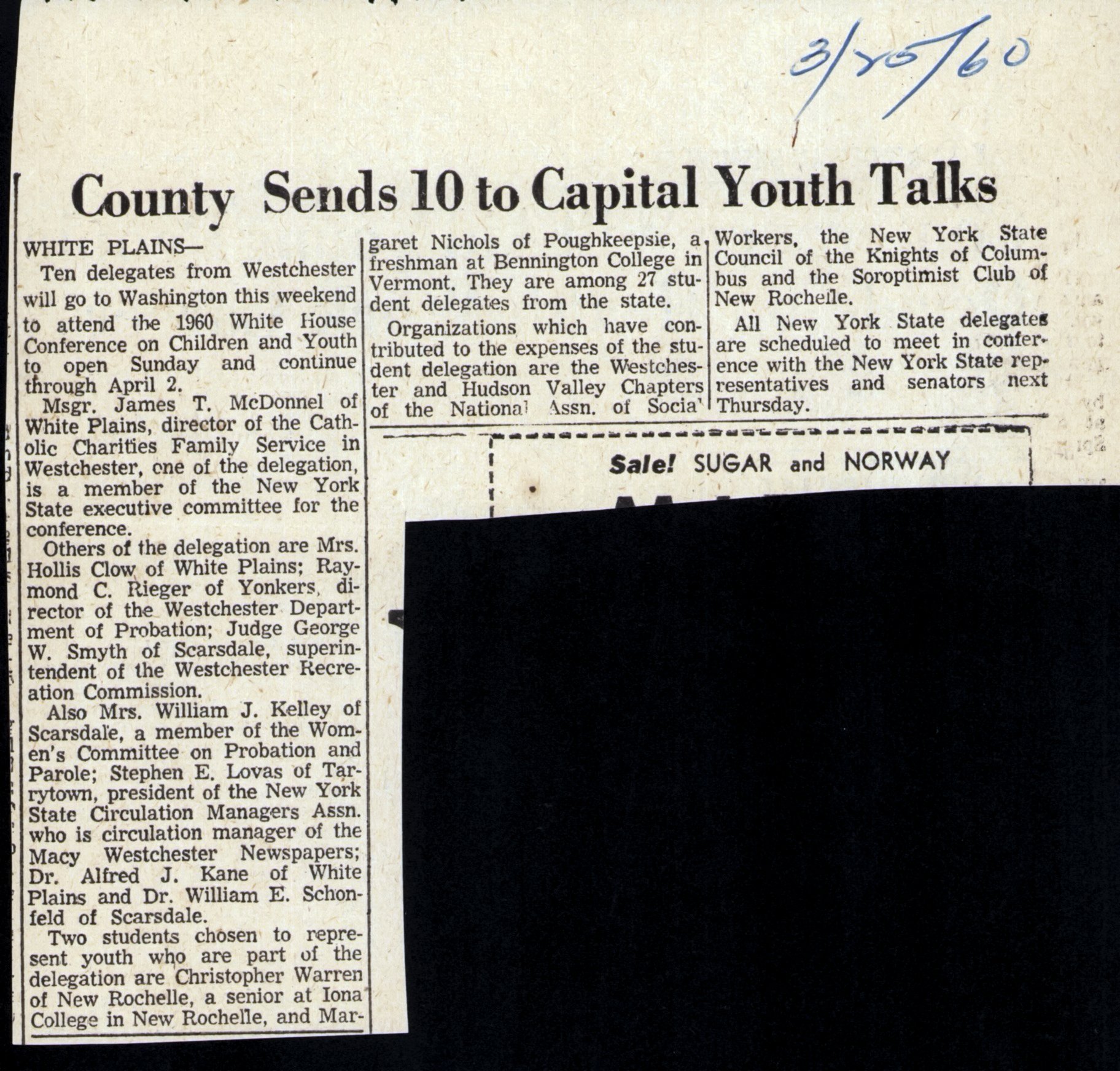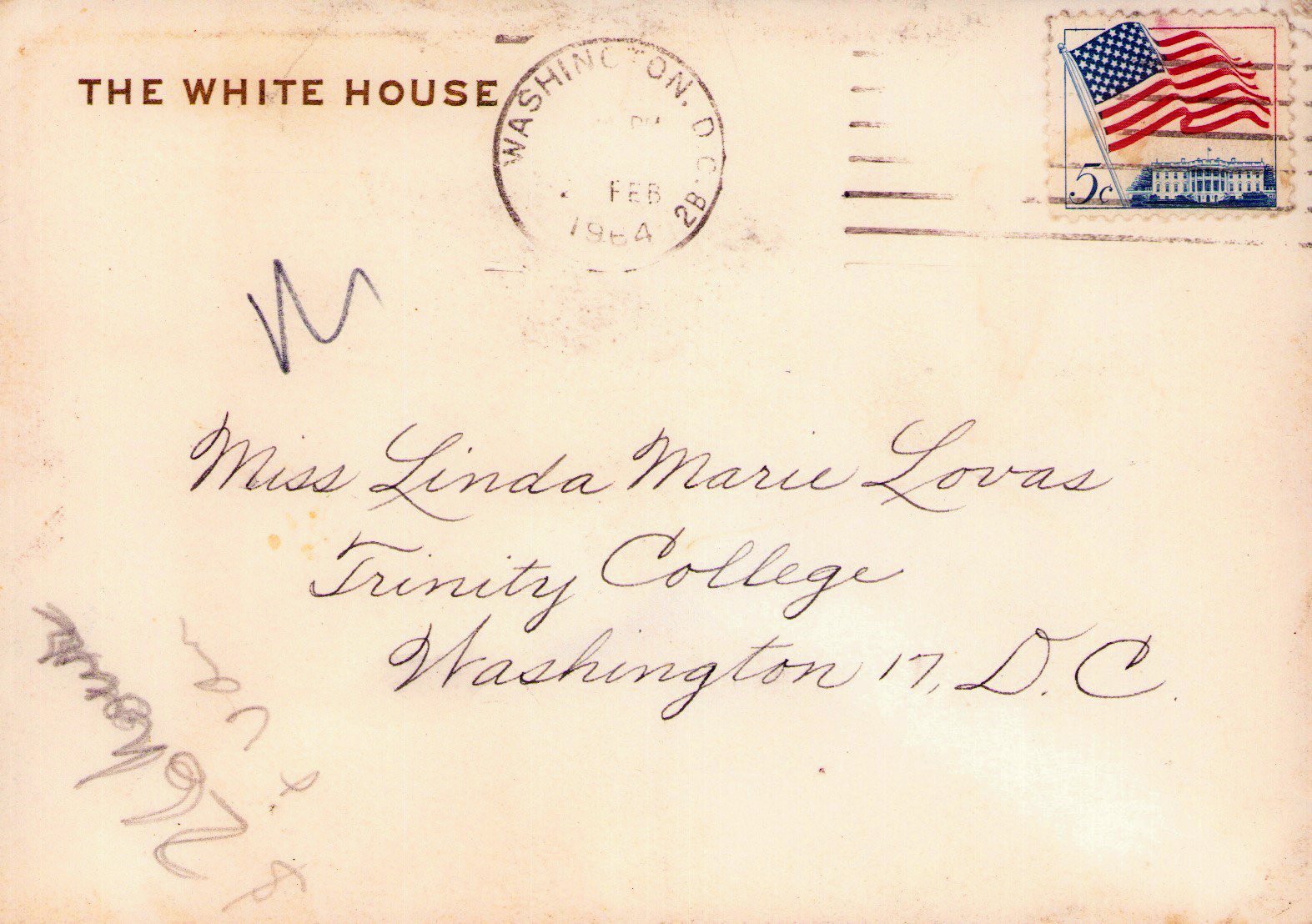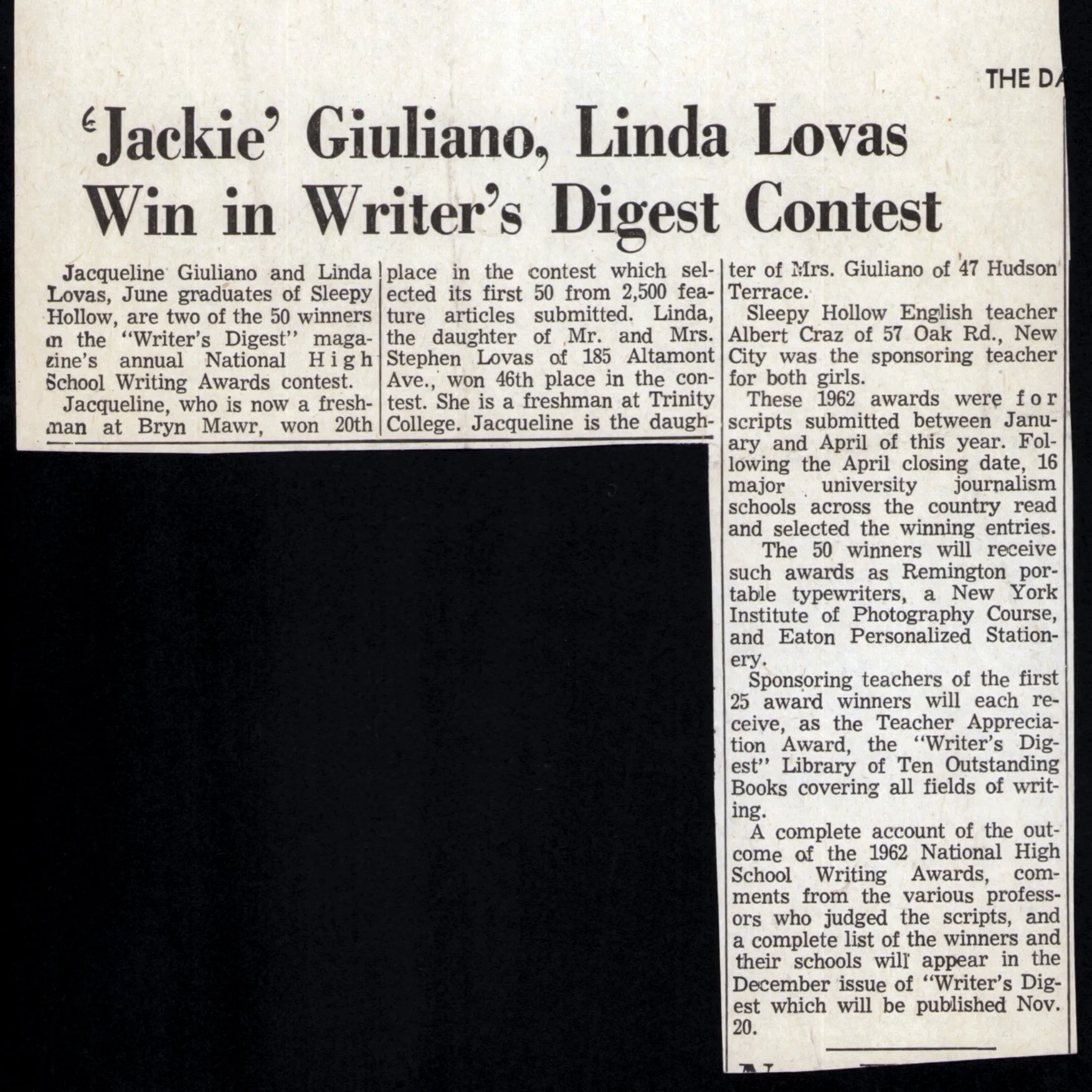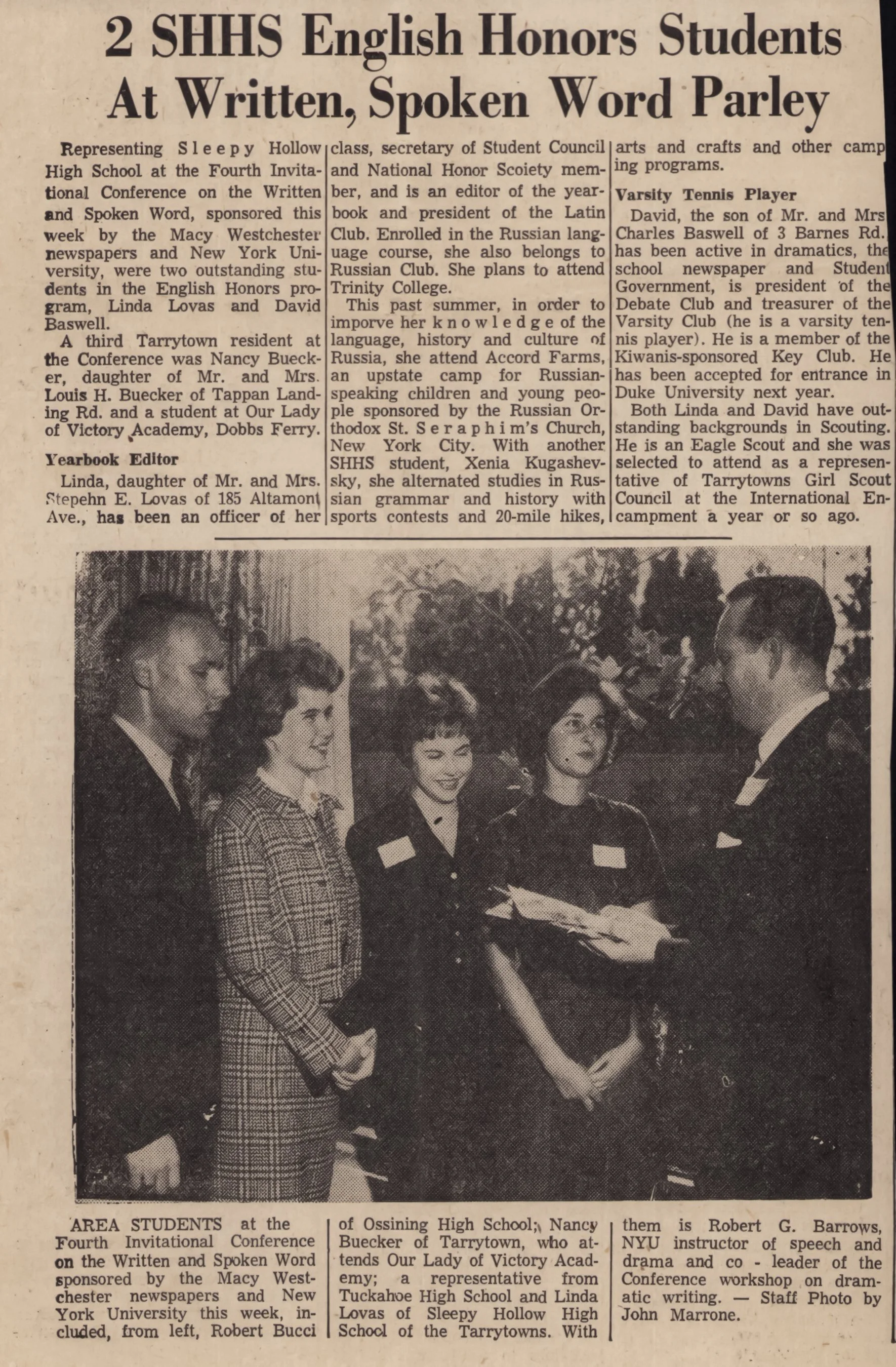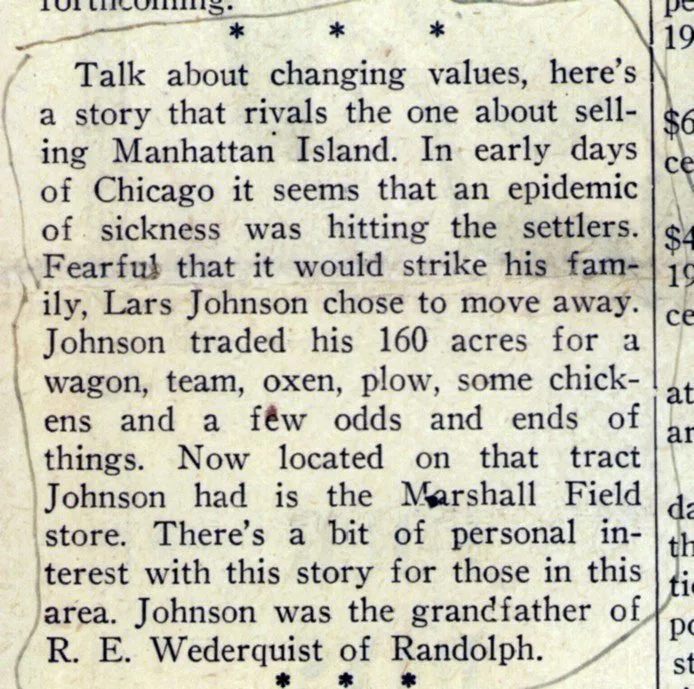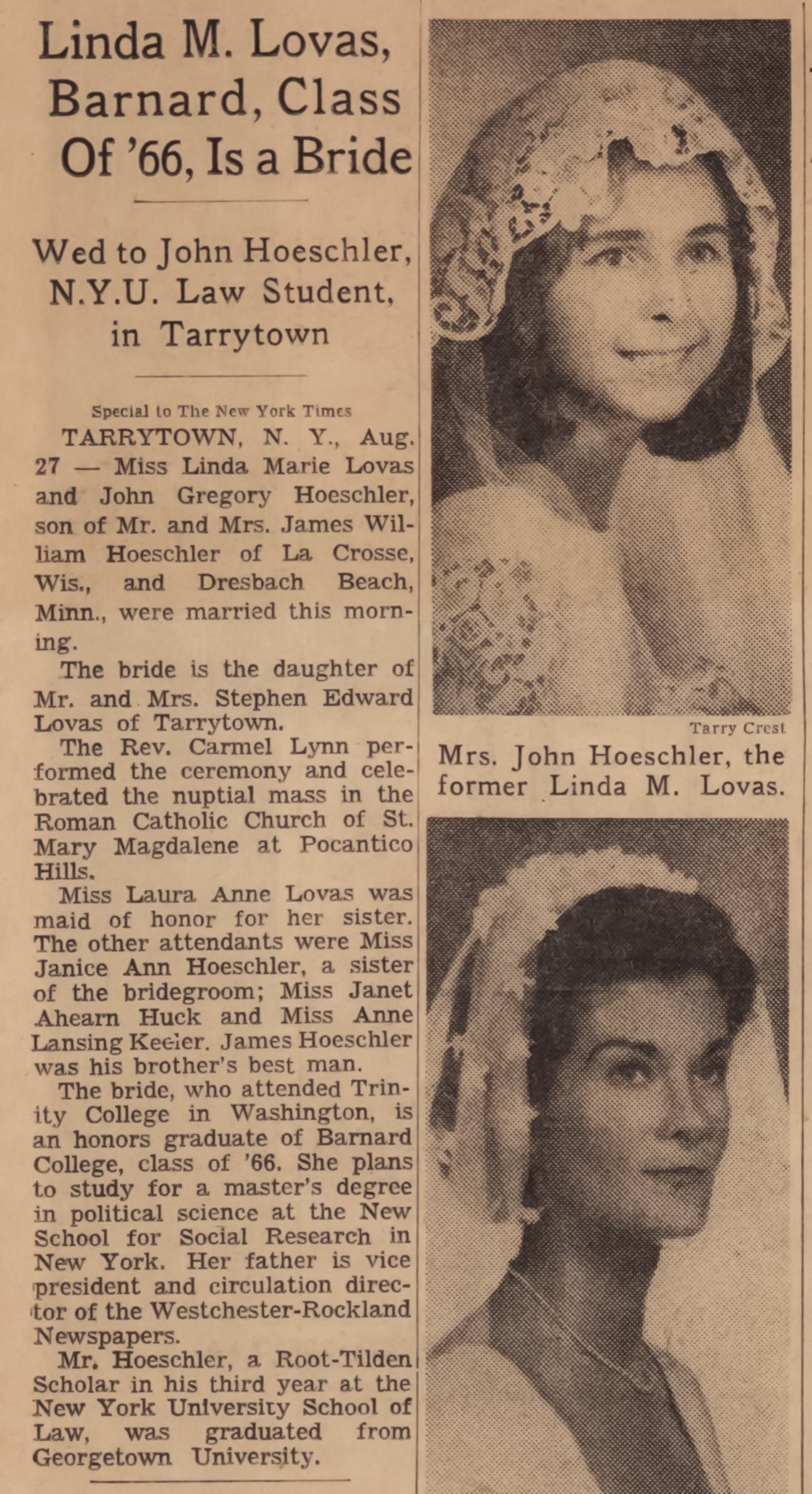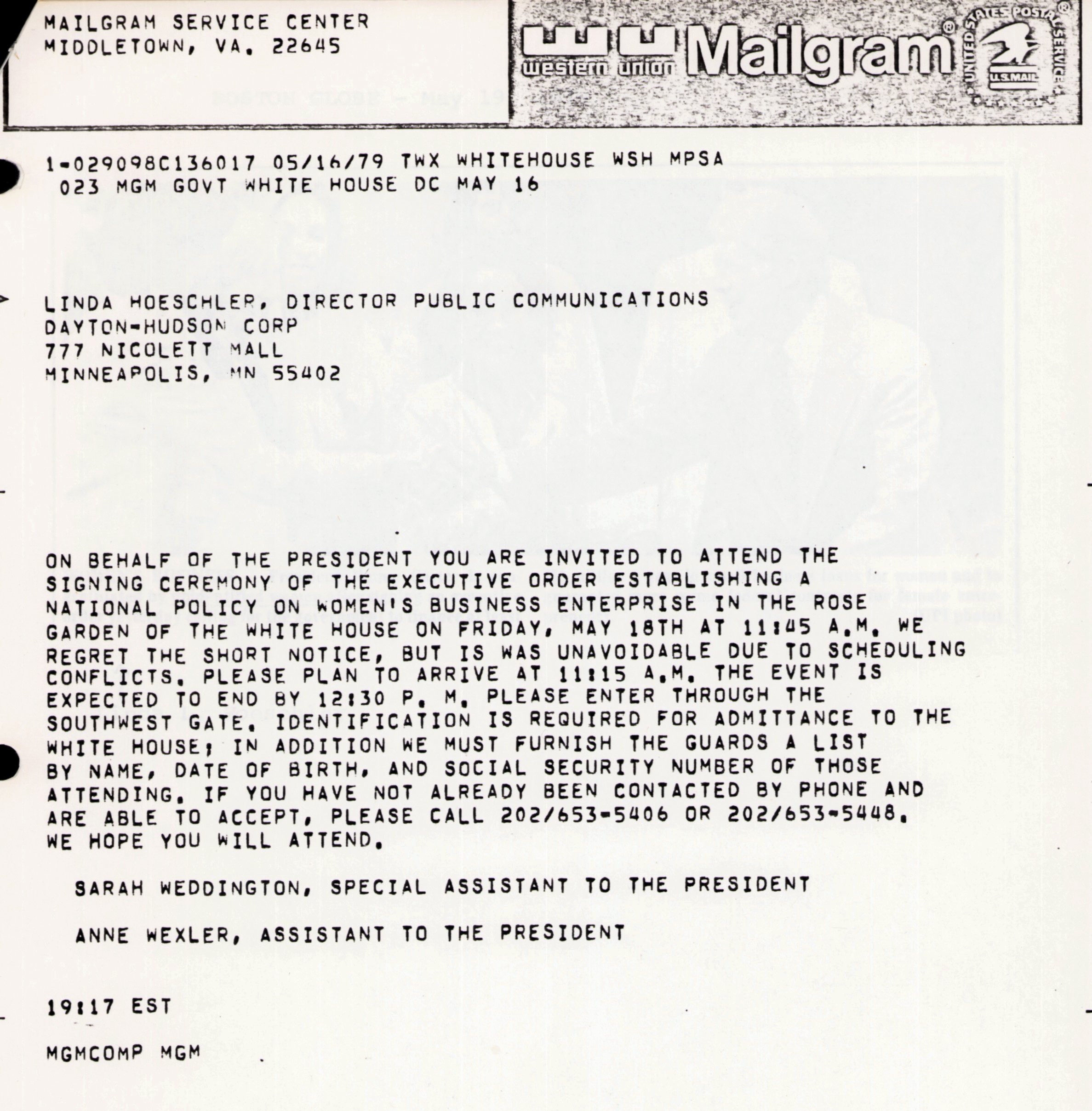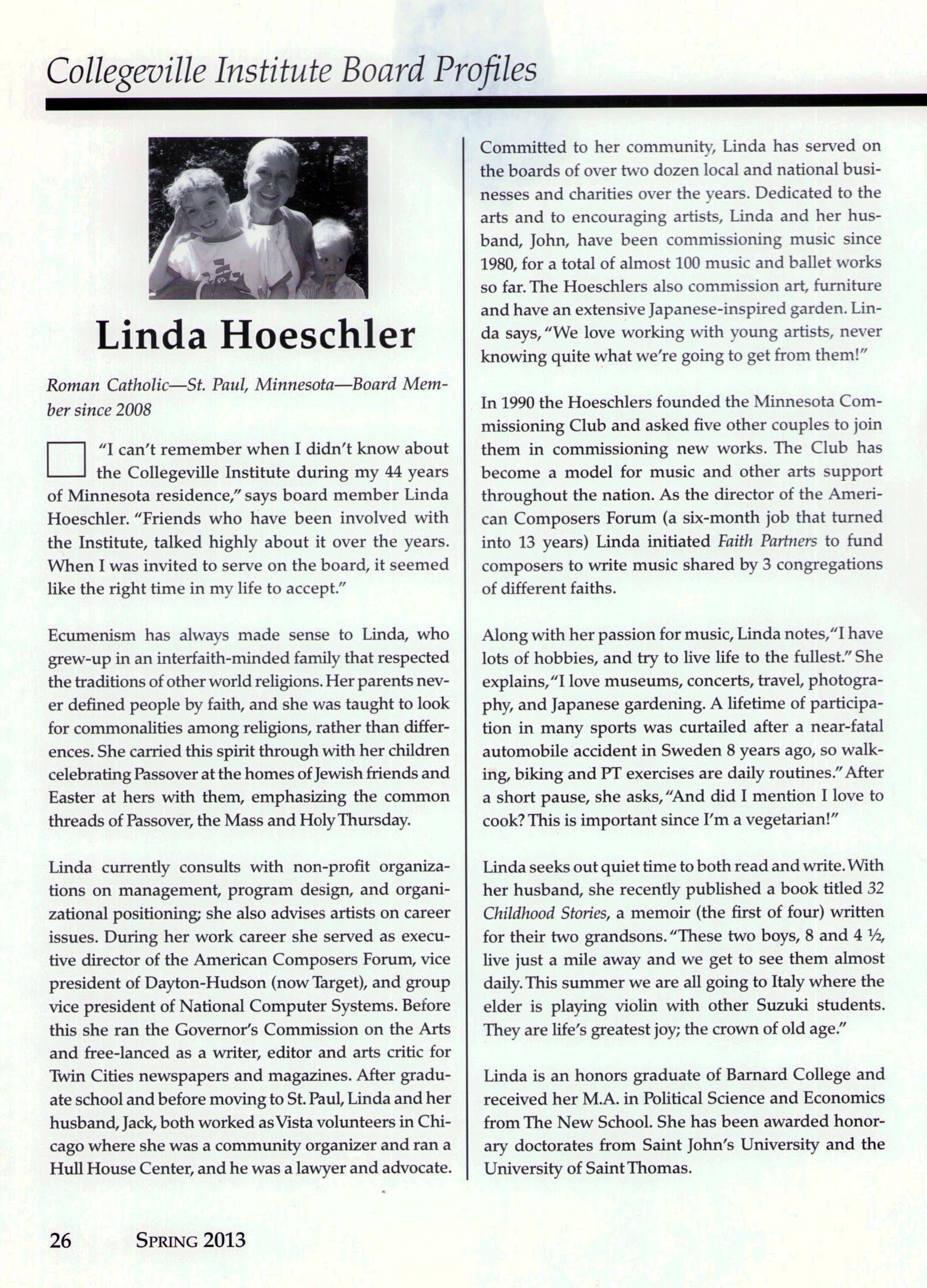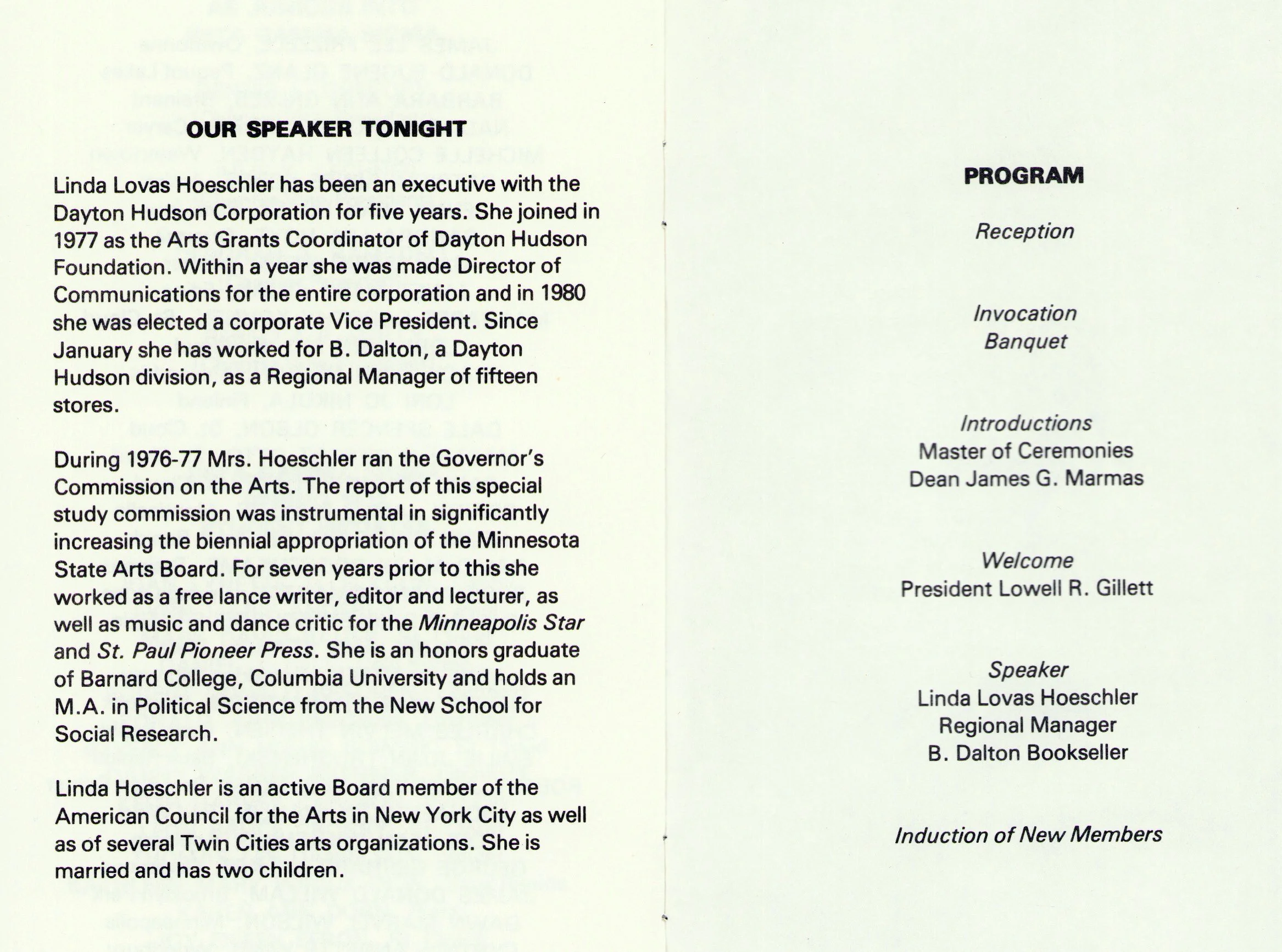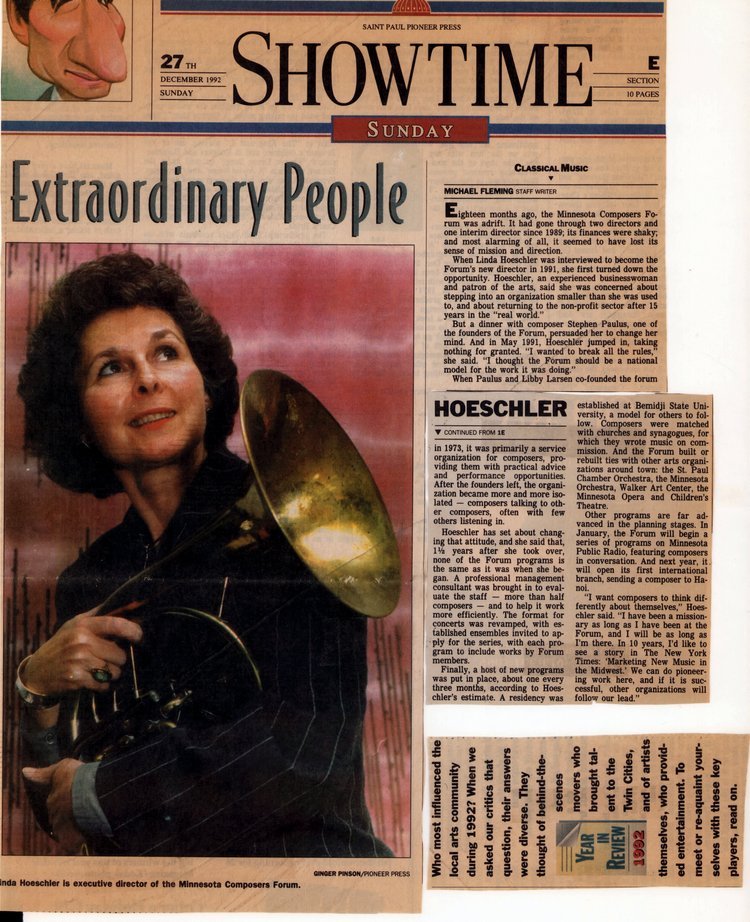
Media
Tarrytown Daily News, July 10, 1958
1958
The_Standard_Star_1965_09_07_12
Tarrytown Daily News, 1959
March 25, 1960
Tarrytown Daily News, February 24, 1961
May 12, 1964
Tarrytown Daily News, 1962
September 12, 1964
Tarrytown Daily News, October 30
Tarrytown Daily News, May 8, 1963
Tabor Beacon
The New York Times, August 28, 1966
April 10, 1968
Tarrytown Daily News, June 2, 1968
May 16, 1979
Boston Globe, May 19, 1979
Beta Gamma Sigma Spring Banquet, St. Cloud State University, April 17, 1982
The Women of the Saint John's Bible: A Profile of Linda, December 13, 2024





